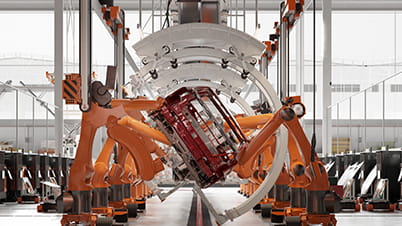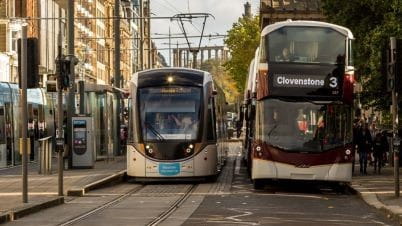Growing needs demand effective differentiation for hotels to optimize operations and enhance guest experiences.

As a hotel manager, you’ve experienced firsthand the significant challenges faced by the hospitality industry in recent years. Five years ago, many hotel chains were forced to cut costs by closing locations, consolidating operations, or reducing staff. Thankfully, the industry is rebounding, with reports showing growth up to 73% in key areas like revenue-per-room and average daily rates.
To capitalize on these encouraging trends, hotels must differentiate their offerings. While increasing occupancy rates is always a sound method to improve KPIs, other strategies like upgrading your facilities and infrastructure require significant capital investment with no guaranteed ROI. Digital technology plays an important role in making the hotel experience unique, but it alone is not the answer.
Besides digital technology, how can hotels differentiate?
A more reliable approach aligns your hotel’s offerings to evolving guest expectations to boost occupancy, enhance customer loyalty and improve overall performance. In many hotels, an over-reliance on digital tools without proper support has diminished the personal touch, complicating staff workflows and reducing operational efficiency.
You know that meeting traveler expectations begins long before s guest arrives.
Most travelers now book online and expect it to be seamless. They rely heavily on online reviews, use comparison platforms and online travel agencies (OTAs), and book lodging via simple, cost-effective alternatives like Airbnb. These behaviors dramatically increase price competition.
Once on-site, guests expect improved service and offerings, including contactless booking, high-speed Wi-Fi and comprehensive web platforms. They demand personalized experiences and prompt responses at every touchpoint.
Hotels must address these guest-specific challenges while also dealing with intense internal pressures from acquisitions, consolidations and high staff turnover. To stand out, you MUST integrate digital technologies to enable faster, more efficient communication and high-quality service delivery—both internally among staff and externally with guests—while keeping overhead and complexity low.
This challenge represents an opportunity that goes beyond the simple cost comparisons or adoption of new tools and instead transforms mission-critical and business-critical processes to empower the next-level Smart Hotel. By leveraging end-to-end network connectivity to synchronize operations, your staff can communicate internally, connect with guests via email, SMS, or telephony and manage business operations on a single network. This creates a seamless information exchange that streamlines operations on-site and across multiple locations. Smart Hotels deliver digital solutions with a human touch, simplifying operations for all employees so they can deliver exceptional, personalized guest experiences.
Empowering staff to enhance guest experiences
To elevate guest experiences, many hotels are adopting technologies like artificial intelligence (AI) and Internet of Things (IoT)-powered customer service. As the industry grows, this trend will accelerate.
The downside of this is that rapid adoption of these digital tools often reduces staff-guest interactions, leading to less satisfying experiences. An integrated approach to adopting digital technologies is needed to combine AI, automation, advanced telecommunications, cloud-based computing and network technologies. This integrated approach connects internal staff communication, guest interaction and hotel operations to enable seamless information sharing and coordination. Your staff will work more efficiently, respond to guest needs faster and deliver personalized experiences that meet modern expectations.
Integrated digital solutions deliver meaningful differentiation for hotels
In a competitive and rapidly evolving industry, integrated digital solutions that leverage end-to-end connectivity can enhance staff workflows, deliver exceptional guest experiences and streamline operations, all while maintaining the human connection that guests value.
Thoughtful integration of digital technologies with human-centric service will not only meet demand and build lasting customer loyalty, but will also streamline your business operations, reduce complexity and costs and drive sustainable growth. Integrated digital solutions are your key to standing out.
Learn more about optimizing your operations with smart hotels
Últimos blogs

The SaaS Advantage for Hotels and Hospitality Communication…
Modern hospitality communications platforms deliver flexibility, cost optimization and exceptional guest experiences.

Your Communications System: A Brake or an Accelerator?
A modernized platform empowers enterprises to optimize operations and drive continuous performance.

Smart Manufacturing Solutions: The Future of Connected Fact…
Smart manufacturing solutions enable connected factories through reliable, intelligent network connectivity that powers automation and efficiency.

Improving Collaboration in Multimodal Transport
Rainbow transforms how companies, staff and passengers operate and connect in public multimodal transport systems.





